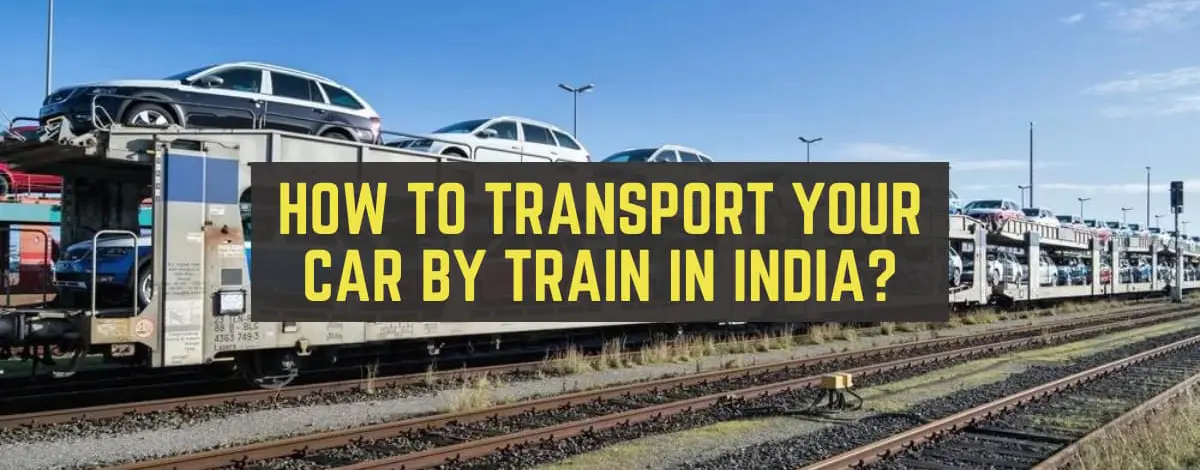The train transportation of cars has become an easy choice nowadays. It is an increasingly common option for common people. Moreover, it provides a less expensive option. You can experience the affordable cost when you transport your car by train. Therefore, we are going to give you ultimate guidance on how to ship your car by train.
The Procedure Of Car Transportation By Train:
1. Reservation Processes:
Make your car’s transportation reservations first. You can complete this at the relevant railway station’s parcel office. Moreover, you have to get a confirmation of your car shipment. So it is best to make reservations at least one week in advance.
Moreover, booking the train in advance, particularly during busy times of the year, is beneficial. Next, you have to provide some specifications such as the vehicle’s model and year, the intended landing station, and the dates you would like to go. Additionally, some train zones allow online reservations, which is a handy choice.
2. Getting Your Car Ready For Train Transportation:
1. Mechanical Examination:
You have to check the vehicle’s condition and operating order. Examine the tires, battery, and brakes. Furthermore, you have to resolve the mechanical problems before loading and unloading.
2. Wash Your Car:
It is easier to identify any potential damage during transportation when the car is clean. Clean the car outside and inside as well.
3. Record Current Damage:
You must take in-depth pictures or videos of your vehicle from different perspectives. Furthermore, you should be very conscious about any dents, scrapes, or other damage. This record is essential if you have to submit a claim for any damage resulting from transportation.
4. Level Of Fuel:
Deplete the fuel tank to approximately 25% of its capacity. This lessens the weight and lowers the possibility of leaks when being in transit.
5. Turn Off Alarm Systems:
You have to check the alarm on your car. It is important to switch off them, so there are no needless triggers while driving.
6. Examine The Fluids:
Checking the fluids is essential, then only you can find no leaks. All fluids should be at the proper levels.
Also Read: Guidelines for Bike Transport by Train
3. Insurance Is A Part Of Safety:
1. Transportation Insurance:
Invest in transit insurance will protect your car against any possible harm while being in transit. Railway services provide basic insurance, but additional coverage can be beneficial for overall peace of mind.
2. Examine The Policy For Insurance:
You need to recognize the insurance policy’s terms and conditions. You have to check what is and isn’t included in the insurance policy, as well as how to file a claim if needed.
4. The Procedures And Paperwork:
In India, you need some documentation to move your car by train:
1. Certificate Of Registration For Vehicle (RC):
This will demonstrate who owns the car.
2. Certificate Of Insurance:
It is important to confirm the vehicle is under the coverage policy for any damage sustained during transit.
3. Certificate Of Emissions:
Moreover, it is essential to confirm that your car satisfies environmental requirements.
4. Identity Verification:
A duplicate of your PAN, Aadhar, or other government-issued identification card is important.
5. Form For Transportation:
Filled in with the specifics of the transport arrangement at the parcel office is necessary.
Also Read: Complete Car Shipping Checklist
5. Learning About The Law Guidelines:
1. Railway Policies:
The Ministry of Railways oversees certain rules for moving cars on the Indian Railways. These rules address things like the kinds of cars that are permitted, packaging specifications, who is responsible for damage, and insurance needs.
2. Insurance And Liability Laws:
The Indian Railroads Act along with its implementing regulations delineates the railroads’ responsibility if goods (including automobiles) are lost or damaged while in transit. It’s critical to comprehend the scope of railway liability and whether supplemental insurance is necessary.
3. Adherence To Environmental Standards:
The Central Pollution Control Board’s emission guidelines must be followed by vehicles being transported. Make sure that the Pollution Under Control (PUC) certificate on your car is still genuine.
4. Interstate Laws:
Be mindful of any special laws that might be applicable when traveling across states, such as entry fees or licenses required for specific car brands.
5. Deep analysis of the cost of car shipment by train:
Generally, we cannot exactly predict the cost of car shipment by train. Because it may vary depending on some important factors. Let us look deep into it.
Also Read: Risks and Benefits of Open vs. Enclosed Car Transport
The Car Shipment Costs By Train In Major Cities:
Delhi To Mumbai:
If you want to transport a Maruti Suzuki Swift as a car, you have to spend Rs. 6000 to 10, 000.
Mumbai To Kolkata:
When you like to transport a normal type of car, you have to spend Rs. 7000 to 12, 000.
Kolkata To Chennai:
The distance between the two cities maybe 1660 to 1700 km for car shipment by train. So you need to pay Rs. 8000 to 13,000.
Chennai To Bangalore:
The distance between the two cities is very short when you compare it with other major cities. Therefore, you will spend Rs. 4000 to 7000.
Bangalore To Delhi:
It is the transportation from south India to North India. For being a longer route, the charge will be Rs. 10000 to 15000.
Major factors which influence the cost of car transit by train:
Distance:
You have to consider the distance when you transport your car by train. Because, as per the distance level, you need to pay the charge. (For example, you need to pay more for a longer distance than a shorter distance).
Car Model And Its Size:
Moreover, you need to give more care to the vehicle if it is larger in size and a luxury brand. Therefore, you need to pay more for extra attention during the shipment.
Insurance:
On the overall cost, you need to add the cost of insurance coverage. Even though it is chargeable, it is an essential one for protecting your car.
Extra Service:
You have to add extra service costs. If you want door-to-door delivery, for this convenience, you need to pay.
Seasonal Demand:
If you transport your car during peak season, definitely it will be high in charge when you compare it with non-seasonal time.
Also Read: What Is The Most Cost-Effective Way To Transport Car And Bike
Advantage Of Car Transportation By Train:
Economic Option:
Carrying a car by train is frequently more cost-effective than using other transportation options. It is more expensive when you drive the vehicle yourself or use a car transport company, particularly when traveling large distances.
Security And Safety:
Vehicle transportation will be safer by using trains. When compared to road transport, there is typically less chance of theft and accidents. Vehicles are closely watched and safely secured during the train trip.
Good For The Environment:
When you compare it to driving your car, train transportation is more environmentally friendly. Taking the train is a greener option for common men who are concerned about their carbon footprint. They have far lower carbon dioxide emissions per ton-mile.
Broad Network And Easy Access:
India’s vast railway network makes even the most remote places accessible. It is a practical choice for moving cars around the nation due to its broad reach.
Disadvantages of Car Transportation By Train:
Time-Related Considerations:
It can take a while to transport a car via train. In addition to the journey time, the procedure also includes the booking, loading, and unloading times. In general, it moves more slowly than direct road travel.
Restricted Range Of Control And Flexibility:
You don’t have much control over the transit procedure once the car is loaded onto the train. In contrast to driving yourself or hiring a driver, you are unable to alter the route or arrange the stopping points.
Possibility Of Damage And Delays:
Although normally safe, delays owing to logistical problems or damage during loading and unloading are always possible. Although uncommon, these occurrences can be costly and uncomfortable.
Limitations And Restrictions:
The size and kind of vehicles that can be moved by train are restricted. Vehicles that are too big or have unique needs might not be accepted. Furthermore, not all vehicle types may be able to use certain routes.
In India, car transportation by train is a practical choice that strikes a balance between environmental, safety, and financial factors. Potential users can handle this process more confidently and easily according to the rules and advice in this guide. Always keep in mind that proper organizing and preparedness are essential for a successful vehicle moving experience.
FAQs On Ship Car By Train
Yes, you can.
Charges may vary based on distance, brand, and size of car, insurance, extra service, and seasonal demand.
Transporting a car by train in India is the safest way.
Transporting a car by train is the most cost-effective way.
Of course, it is safe to send your car with packers and movers when you hire them from 1Support.


